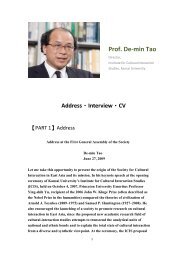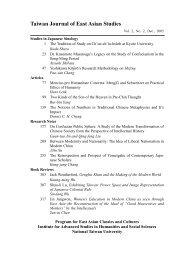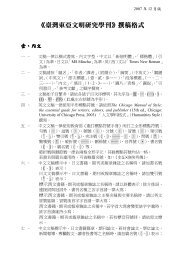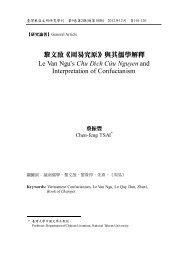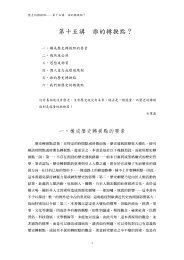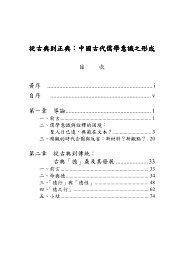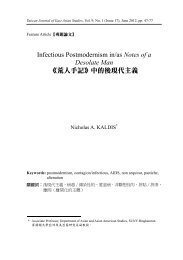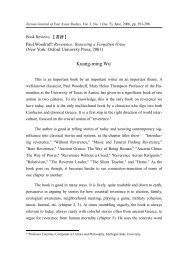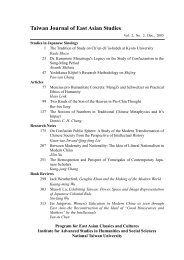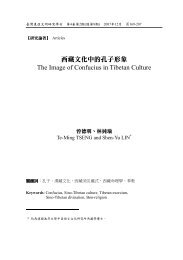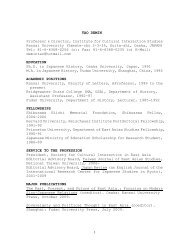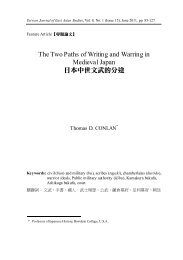臺灣東亞文明研究學刊 - 東亞經典與文化研究計畫 - 國立臺灣大學
臺灣東亞文明研究學刊 - 東亞經典與文化研究計畫 - 國立臺灣大學
臺灣東亞文明研究學刊 - 東亞經典與文化研究計畫 - 國立臺灣大學
You also want an ePaper? Increase the reach of your titles
YUMPU automatically turns print PDFs into web optimized ePapers that Google loves.
Nicholas T. PHILLIPSON Theorising the Problems of Small Nations in the Enlightenment 237<br />
world and example to moderns. Hume thought that both of these characteristics,<br />
national jealousy and a spirit of cultural emulation, had fertilised and weakened the<br />
fabric of the European state system and complicated its politics. For running though<br />
Hume's political essays was the fear that the international warfare which was<br />
characteristic of the modern age was being sustained by dynastic rivalries and a<br />
spirit of national jealousy rather than by any proper appreciation of the national<br />
interests of the states involved. It was being fed by huge military and naval budgets<br />
and a ruinous system of taxation which, if unchecked, would have disastrous<br />
consequences, weakening the economies of every European state and sowing<br />
discontent among their taxpayers. What alarmed Hume was that Europe's rulers had<br />
little understanding of the principles of commerce and conducted their commercial<br />
policies as they conducted their wars, to eliminate their competitors and capture<br />
their markets, a practice which Hume thought would lead to the destruction of the<br />
European economy and the state system which depended on it.<br />
As Istvan Hont has recently suggested, Hume's thinking about national<br />
jealousy, is crucial to understanding his thinking about international trade and<br />
commerce, the governing economic principle of the European state system as he<br />
knew it. 7 But it is also crucial to his entire understanding of human nature. In his<br />
view, the natural desire to better ourselves, to seek and enjoy the 'conveniences' as<br />
well as the 'necessities' of life was an observable, fundamental fact of human<br />
behaviour, observable in every form of civilisation at every period of history and<br />
driven psychologically by a spirit of 'emulation' that was enlivening, pleasurable<br />
and potentially of profound importance to social progress. In his Political<br />
Discourses of 1752 Hume used this psychology to develop a theories of labour,<br />
money and commerce which were to be of foundational importance to the later<br />
enlightenment's political economy. But what matters here is that this same line of<br />
7 Istvan Hont, Jealousy of Trade: International Competition and the Nation-state in Historical<br />
Perspective (Cambridge: Belknap Press of Harvard University Press, 2005.), Introduction and<br />
Chapter 4.<br />
xiii



